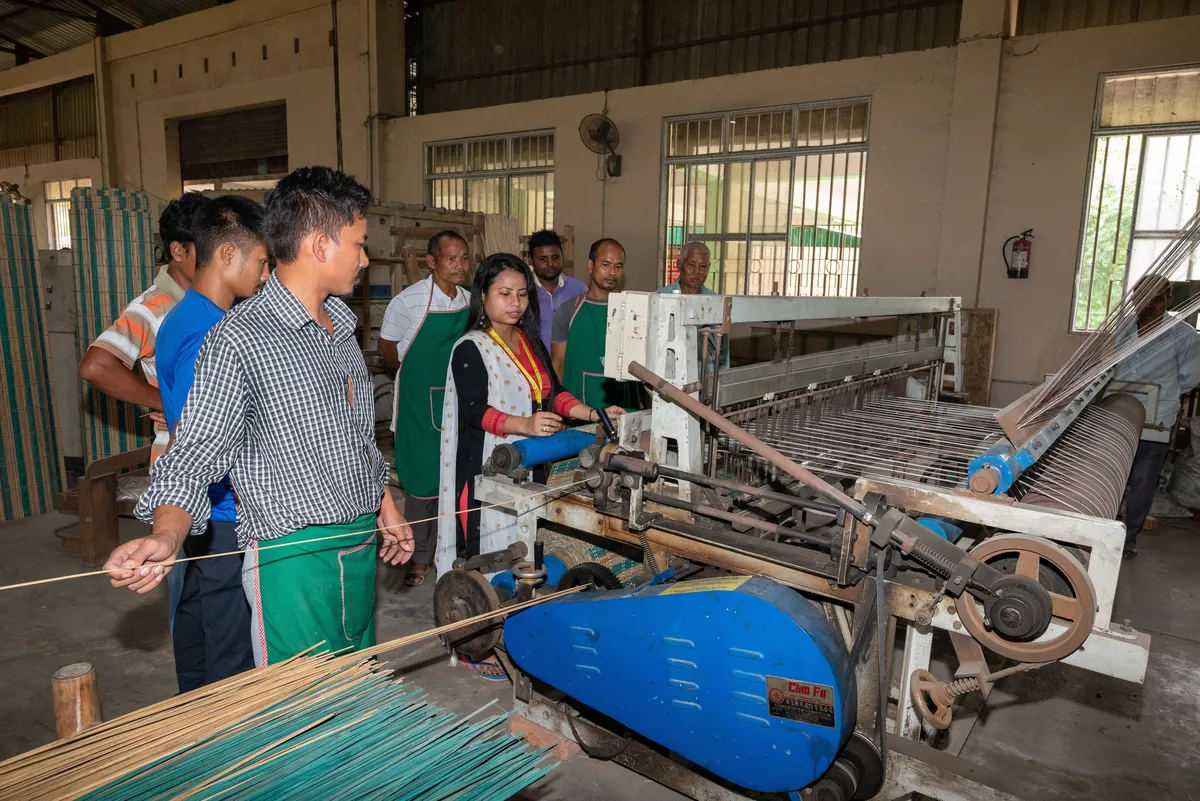Business News
Explained: The 3 employment-linked schemes under EPFO launched in Budget 2024

3 min read | Updated on July 23, 2024, 18:31 IST
SUMMARY
The government wants to create jobs in manufacturing under the formal sector, and it has announced three employment-linked incentive schemes in the Union Budget 2024. Details below.

The government is pushing for job creation in the manufacturing sector
The Indian government introduced three employment-linked incentive schemes in this year’s Union Budget on July 23. Finance Minister Nirmala Sitharaman announced the three schemes, highlighting the government’s interest in pushing employment in manufacturing in the formal sector. The schemes will be implemented on the basis of enrollment at the Employees Provident Fund Organisation (EPFO).
These three schemes form a part of Prime Minister Narendra Modi’s Budget package and are built with the aim to create jobs and provide employers and employees with several important benefits.
What are the three schemes?
This scheme is aimed at encouraging individuals to join the workforce by offering them one month’s wage to all first-time employees in all formal sectors.
In monetary terms, new employees who are earning a maximum of ₹1 lakh per month will be eligible to receive a maximum of ₹15,000 per person through direct benefit transfer (DBT) as a one-month wage benefit. The scheme is expected to benefit 21 million youth.
"Direct Benefit Transfer of one month's salary in three instalments to first-time employees as registered in the EPFO will be up to ₹15,000. The eligibility limit will be a salary of ₹1 lakh per month," said Finance Minister Nirmala Sitharaman.
The second scheme is focused on creating jobs in the manufacturing sector. It is built to incentivise employment for first-time workers by providing employers and employees with benefits related to EPFO contributions for the initial four years of their working tenure.
Sitharaman said, "An incentive will be provided at a specified scale directly to the employee and employer with respect to the EPFO contribution in the first four years of employment. This scheme is expected to benefit 30 lakh youth and their employers."
This scheme encourages employers to hire new people by offering them a reimbursement of ₹3,000 per month on EPFO contributions for every extra person hired for a salary of up to ₹1 lakh per month in the next two years. It is aimed at generating employment for 50 lakh people.
FM Sitharaman said, “The government will reimburse employers up to ₹3,000 per month for two years towards the EPFO contribution for each additional employee.”
This scheme incentivises hiring for employers and encourages them to expand their businesses.
Boosting employment amongst the youth
Along with the above three schemes, the government has introduced many measures to boost participation in the workforce, especially for women, including skilling programs, building of women’s hostels and creches through partnerships with the industry, etc.
To bolster youth employment, the government has introduced a centrally sponsored skilling scheme to support 20 lakh youth over the next five years with the help of states and industry.
The model skills loans scheme was also amended in the budget. “The model skill loans scheme will also be revised to facilitate loans of up to ₹7.5 lakh with a guarantee from a government-promoted fund. This is expected to help 25,000 students a year,” FM Sitharaman said.
Along with these, many favourable announcements for the education sector focused on skilling, employment, MSMEs, and the middle class were made by the FM in the budget speech to encourage the youth to join the workforce.
By signing up you agree to Upstox’s Terms & Conditions
About The Author
Next Story

